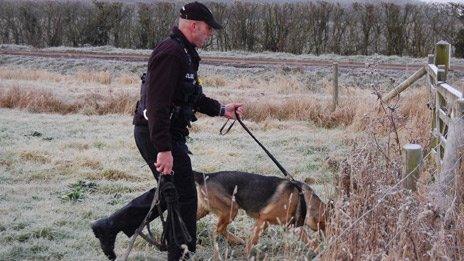Hare coursers 'becoming increasingly violent'
- Published
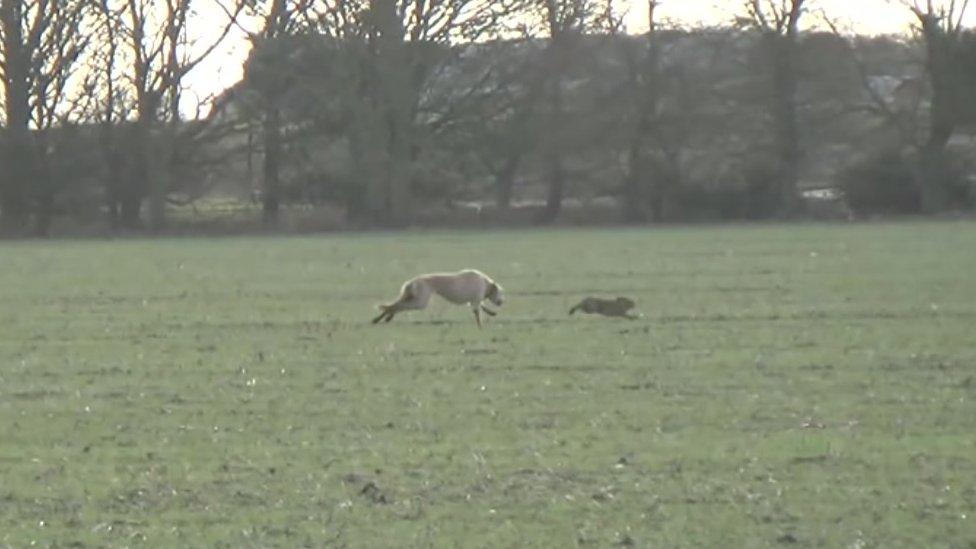
Lincolnshire Police received more than 2,000 calls about hare coursing last season
Farmers in parts of Lincolnshire have said they fear for their safety after an escalation in the level of violence used by people setting dogs on hares.
The National Farmers Union said the problem had got "out of control", with one incident before Christmas involving 50 men and children.
One farmer said he was "terrified" when hare coursers threw rocks and hammered at the side of his car when confronted.
He said it was only a matter of time before someone was seriously injured.
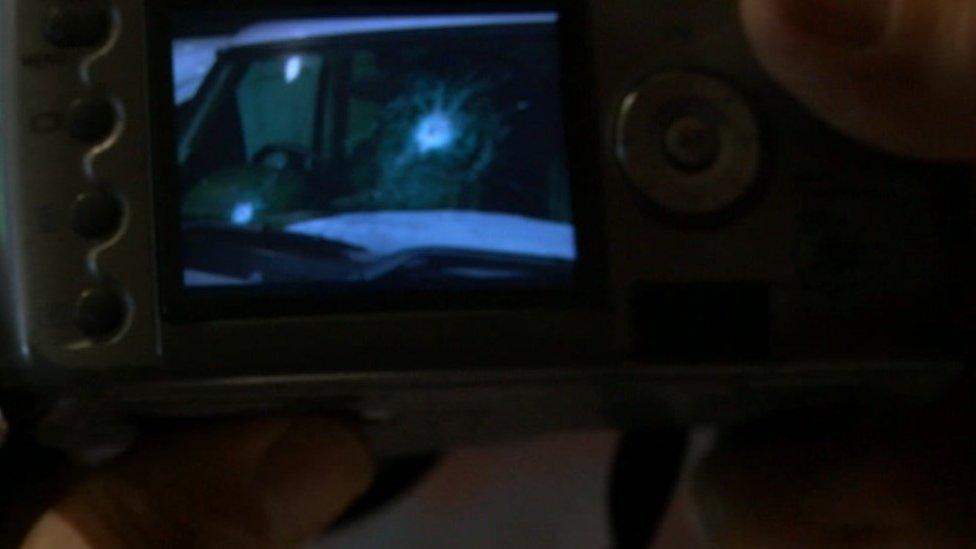
A farmer had rocks thrown at his car as hare coursers tried to leave before police arrived
Another farmer, who did not want to be identified for fear of reprisal, said: "They would kill us if they could - they have got no scruples, or respect for anybody."
Others have reported threats of violence, verbal abuse and property and crops being damaged.

Fear as gangs terrorise fenlands
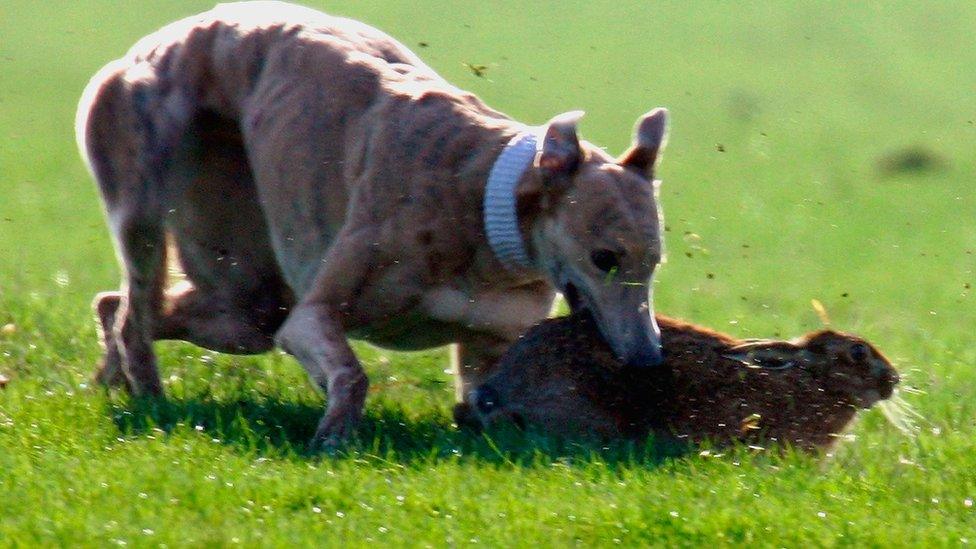
Coursers tend to hunt with their dogs in Lincolnshire, Cambridgeshire, Norfolk and Suffolk
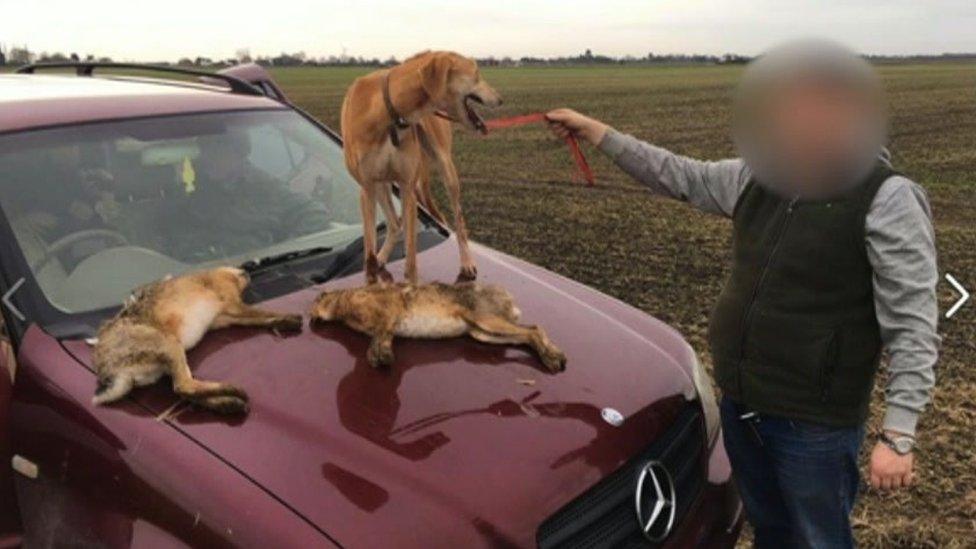
Dead hares are often dumped in ditches or left in the fields
Look North's rural affairs correspondent Paul Murphy reports:
Record numbers of hare coursing incidents are being reported and social media is awash with footage of those involved.
However, what's really changing is the level of violence hare coursers mete out to those who try to stop them.
I have spent a fortnight talking to farmers, landowners and local residents in and around the village of Deeping St Nicholas in the Lincolnshire Fens.
Hare coursing is almost a daily occurrence, and the locals who try to stop the illegal gangs are often threatened and verbally abused; car windows have been smashed, fields of crops driven through, gates broken down.
Lincolnshire Police say they are doing the best they can on finite resources and say that they are trying to work with local farmers, but many feel it is only a matter of time before someone is seriously injured.

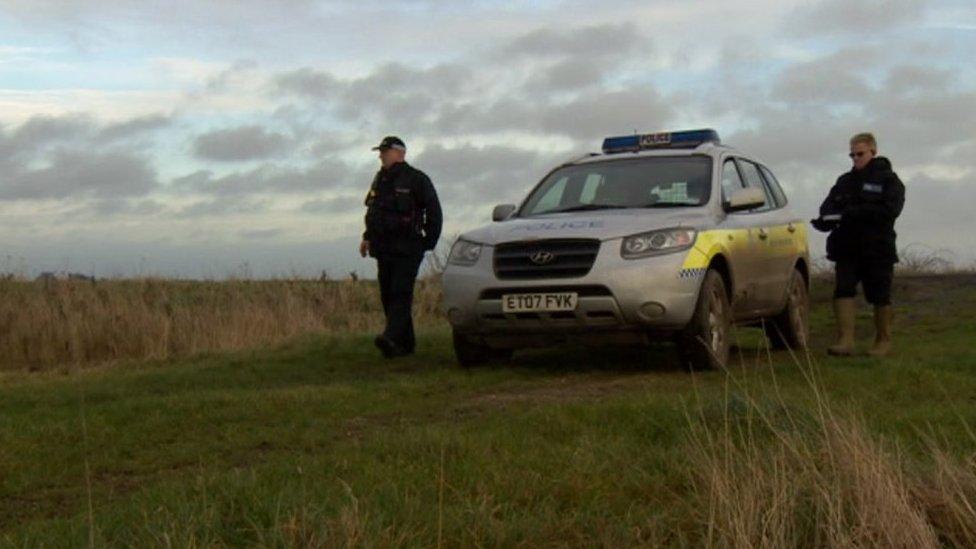
Wildlife officers have trained colleagues based in areas where hare coursing is an issue
Some farmers are employing their own tactics in a bid to stop the coursers, including making their own police-style stinger devices to prevent access to their land.
Some are filming the coursers using drones, and digging trenches and using boulders to block entrances.
Traditionally, coursing starts to rise in the autumn after crops have been harvested. They then continue until spring.

Hare coursing
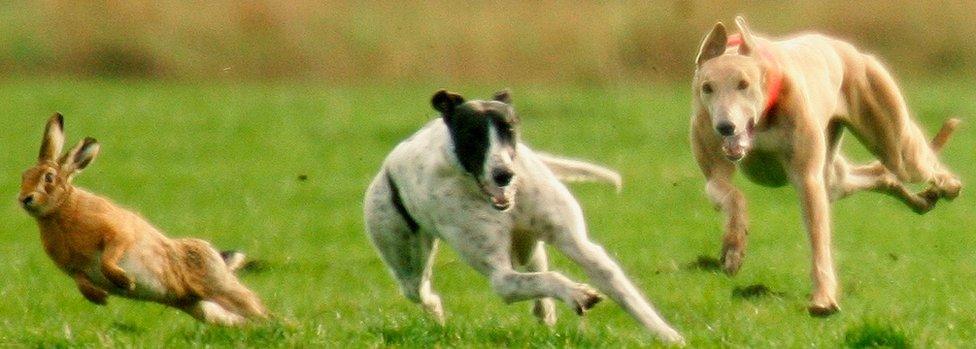
The coursers will walk along the field to frighten the hare into the open
The dog catches the hare and kills it by "ragging" it - shaking the animal in its teeth
The dogs - usually greyhounds, lurchers or salukis - are on a slip lead, threaded so it can be easily released
The dead hare is usually left in the field or thrown in a ditch
Since 2005, hare coursing has been illegal throughout the UK. The Hunting Act 2004, external makes it an offence to hunt wild mammals with dogs
Source: Lincolnshire Police

- Published22 December 2016
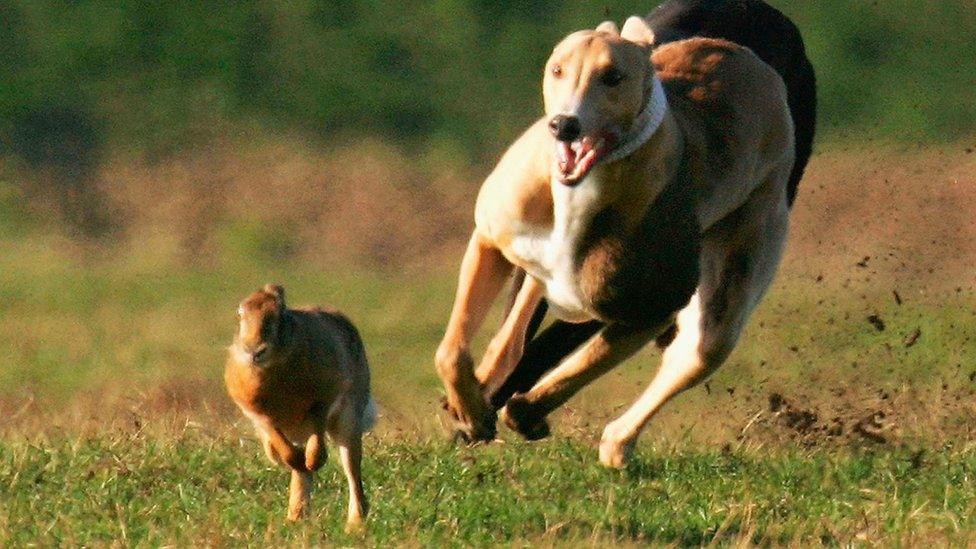
- Published1 September 2016

- Published28 November 2015

- Published26 October 2015
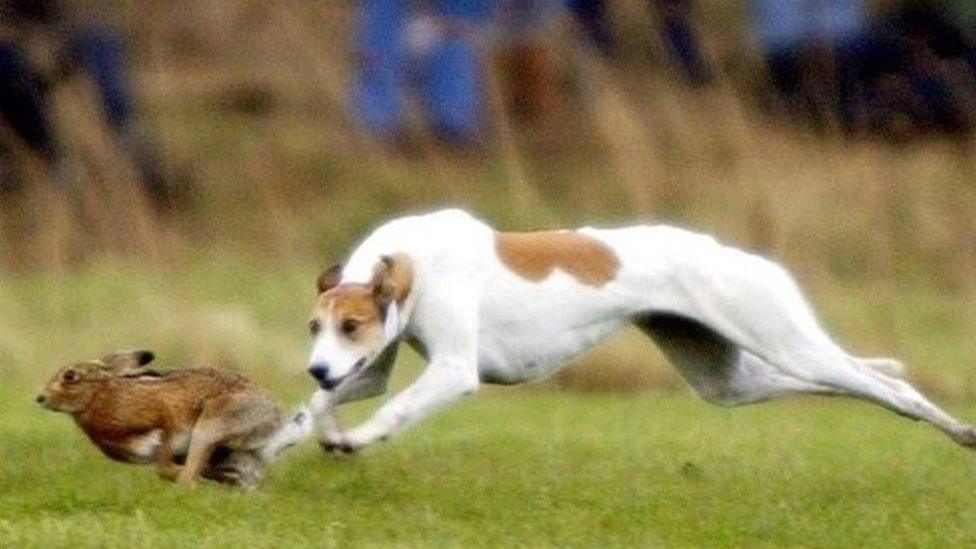
- Published1 January 2013
